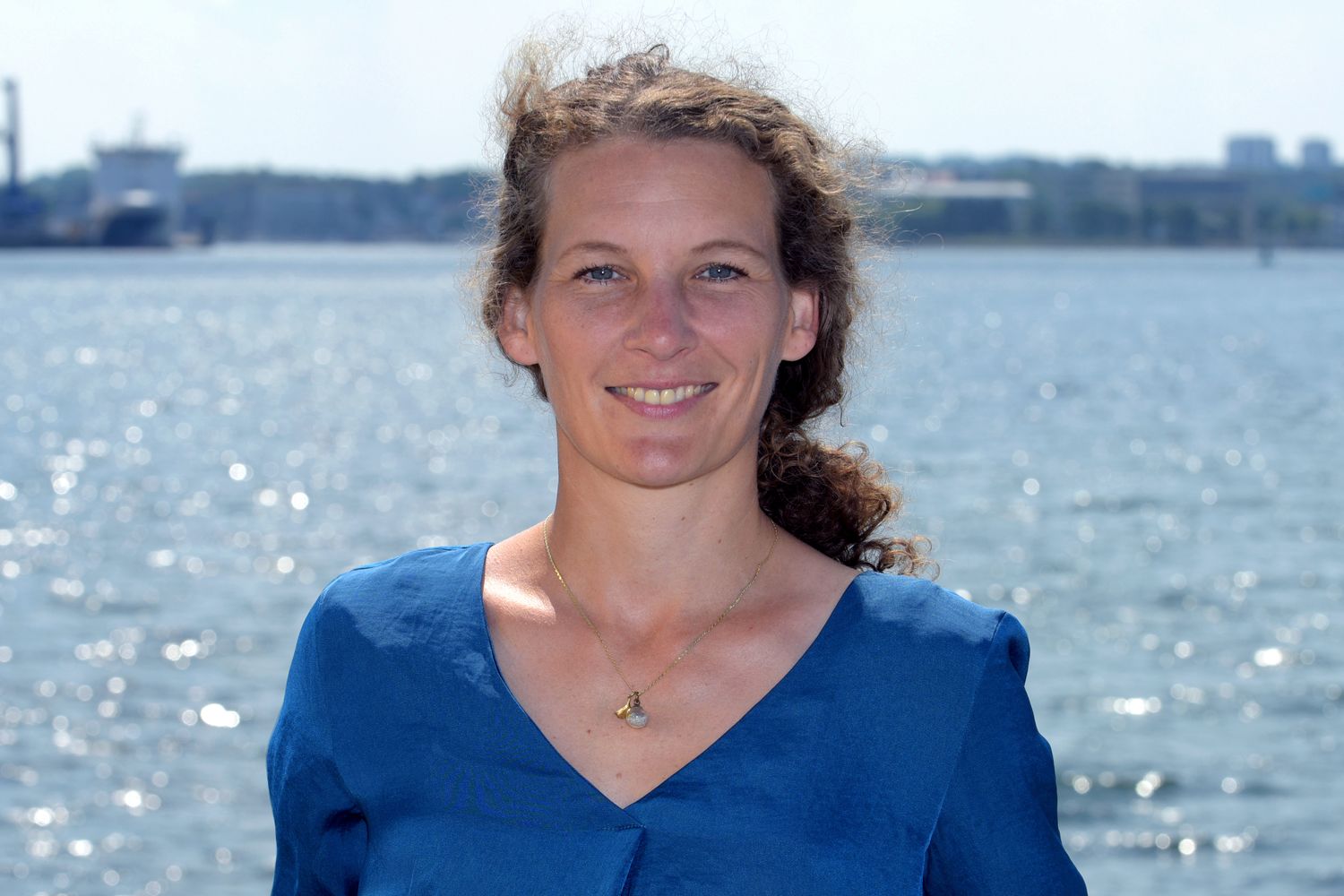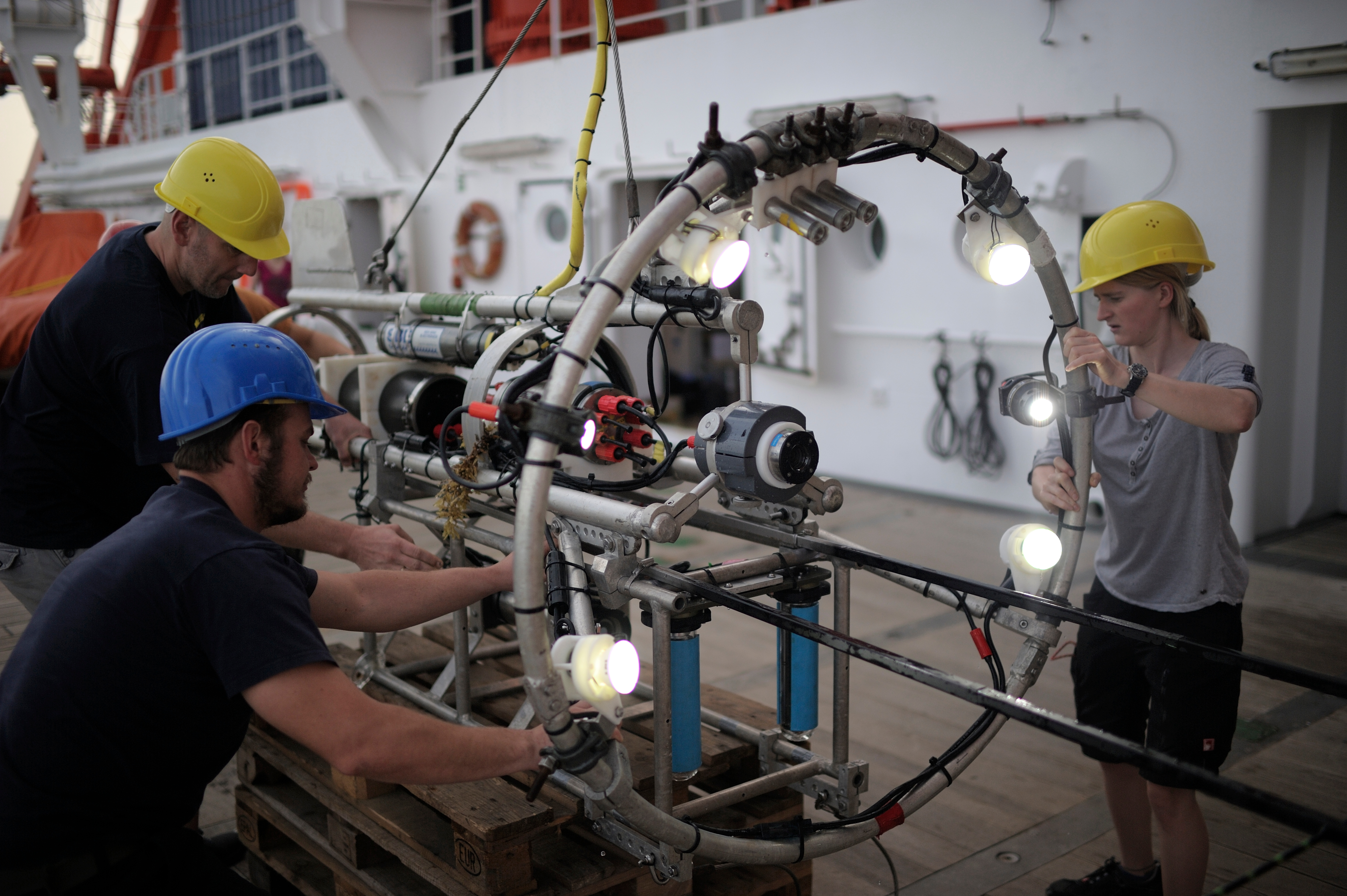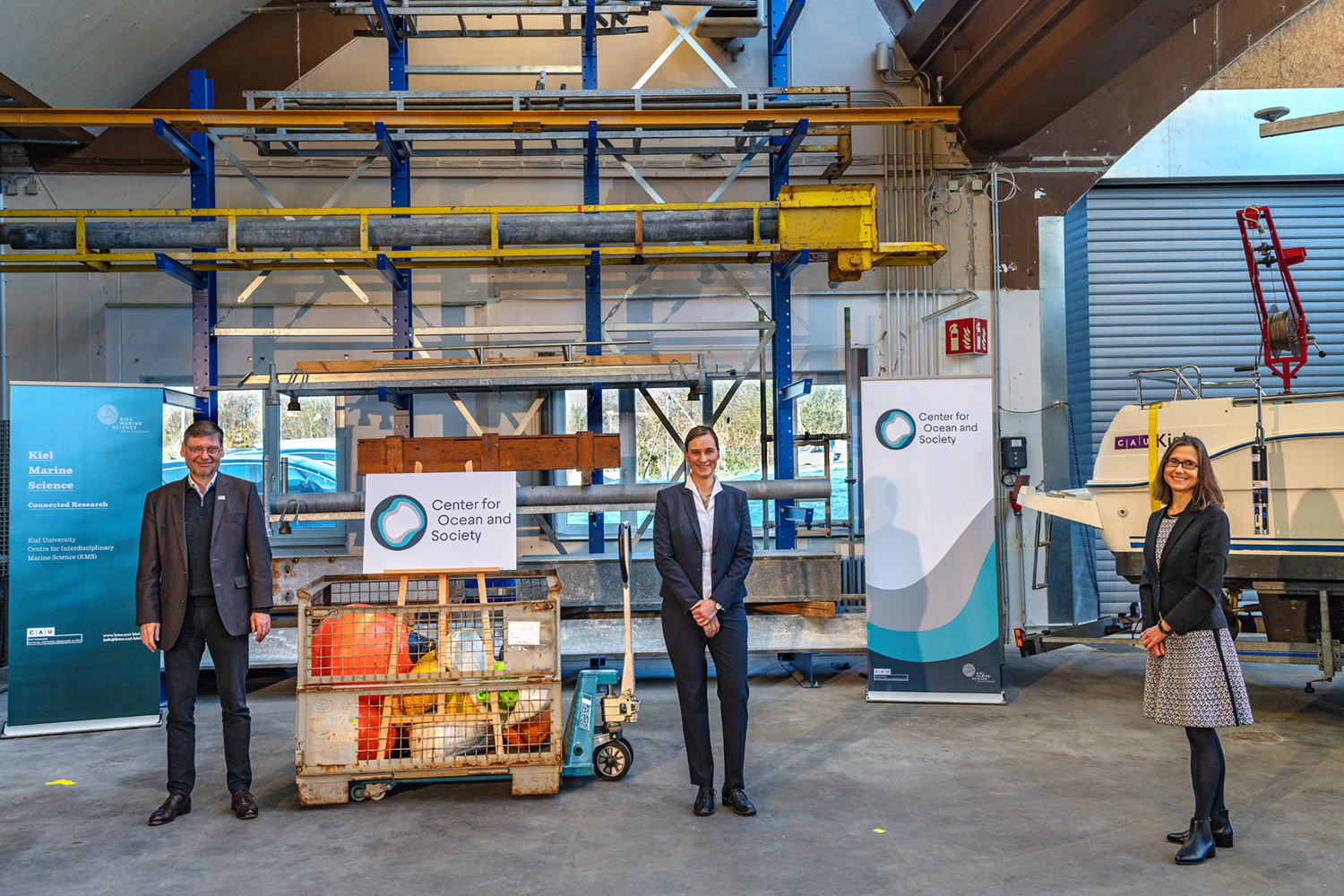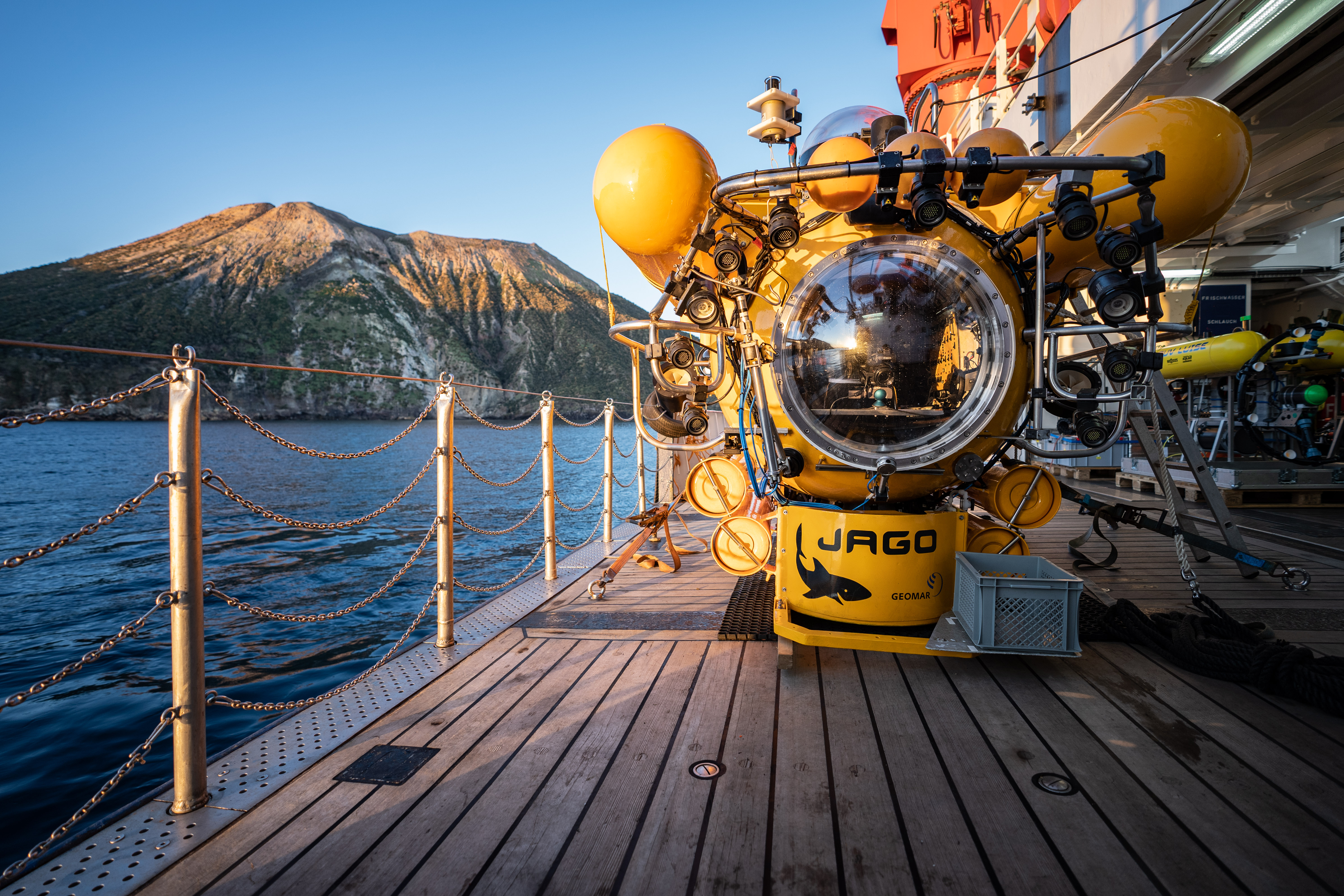The aim is to identify and characterise the key components of this complex process - especially in the context of the increasing impact of climate change on the ocean. A total duration of six years is planned, divided into two funding periods. The project will be carried out in close cooperation with the priority research areas Kiel Life Science (KLS) and Kiel Marine Science (KMS) at Kiel University and with non-university partner institutions. The project is explicitly interdisciplinary in nature and combines the research fields of marine biology with molecular biology, ecology and evolutionary research.
"On behalf of the University Board, I would like to congratulate Meike Stumpp on this remarkable success and the high personal distinction! The State University has thus gained another Emmy Noether group that is exemplary in the interdisciplinary cooperation at the interface of marine and life sciences in our priority research areas. The DFG's confirmation is also recognition of the CAU's commitment to providing support for our excellent young researchers," emphasized Professor Karin Schwarz, Vice President of Kiel University and responsible for research, technology transfer and young researchers.
Marine invertebrates such as corals, mussels or sea urchins play an important role in the marine ecosystem and provide a basis for human survival - as prey for other marine life or as a source of food for humans themselves. Most of these invertebrates produce larvae that have to survive in open waters for up to several months before they develop into young animals. They have to adapt to highly variable conditions in the sea and react to different pH-values or water temperatures. Food intake and utilization play a decisive role in the survival of the larvae.
"The aim of my research is to understand how exactly the widely distributed group of sea urchins develops in the larval stages and which processes are crucial for complex digestive functions. The focus is on the role of the alkaline digestive system, a particularly remarkable aspect of these organisms," says Dr. Meike Stumpp, who's Emmy Noether Group is affiliated with the department of Professor Dr. Matthias Leippe at the Institute of Zoology. "As part of our research, we are also looking at the influence of the marine ecosystem on larval growth more closely. We want to understand whether certain cellular characteristics of the digestive tract in these animals contribute to their ability to cope with progressive climate change," Stumpp continued. So far, too little is known about such vital digestive processes in common marine organisms. This is a gap that Dr. Meike Stumpp would now like to close in the coming years. Research into these tiny sea urchin larvae, which are about 0.3 millimetres in size and can only be viewed under a microscope, is complex, requires patience and special laboratory techniques, such as those available at the Institute of Zoology or at the Physiological Institute.
The research programme of the new Emmy Noether junior research group is divided into three consecutive parts. First, the molecular and biochemical basis of the digestive processes will be investigated using the sea urchin larva model. In order to understand the influence of the environment on these processes, the second part aims to perform physiological measurements on living animals and tissues under conditions relevant to climate change. The third part will then examine whether the observed processes can be transferred from the sea urchin larva to representatives of other marine organisms and thus identify basic principles in the digestive physiology of marine invertebrate larvae.
"We want to contribute to a holistic picture of how marine larvae function and understand how efficient digestive processes have developed during the evolution of multicellular organisms," explains Stumpp.
Contact
Dr. Meike Stumpp
Zoological Institute I Kiel University
+49 431 880 4193
mstumpp@zoologie.uni-kiel.de
Friederike Balzereit
Science Communication KMS
+49 431 880 3032
fbalzereit@uv.uni-kiel.de
Christian Urban
Science Communication KLS
+49 431 880 1974
curban@uv.uni-kiel.de
About Emmy Noether Junior Research Groups
The Emmy Noether Programme offers particularly well-qualified young scientists the opportunity to qualify for a university professorship through the independent performance of a junior research group over a period of six years. www.dfg.de/foerderung/programme/einzelfoerderung/emmy_noether
About Kiel Marine Science (KMS)
Kiel Marine Science (KMS), the Center for interdisciplinary marine science at Kiel University, is devoted to excellent and responsible ocean research at the interface between humans and the ocean. The researchers combine their expertise from various natural and social science disciplines to investigate the risks and opportunities that the sea provides for humans. The success of Kiel Marine Science is based on close interdisciplinary cooperation in research and teaching between researchers from seven faculties at Kiel University. Together with actors from outside the scientific community, they work globally and transdisciplinarily on solutions for sustainable use and protection of the ocean.
https://www.kms.uni-kiel.de/en
About Kiel Life Science (KLS)
The interdisciplinary centre for applied life sciences – Kiel Life Science (KLS) – links research at the CAU from the fields of agricultural and nutritional sciences, the natural sciences and medicine. It forms one of four research focus areas at Kiel University, and is aimed at achieving a better understanding of the cellular and molecular processes with which organisms respond to environmental influences. The research is focussed on issues such as how agricultural crop plants adapt to specific growth conditions, or how illnesses can arise through the interaction of genes, individual lifestyle and environmental factors. Health is always viewed holistically in the context of evolution. Under the research focus' name, there are currently around 80 scientists from 40 institutes and six faculties from Kiel University working collaboratively as full members.
https://www.kls.uni-kiel.de/en/about-us
…



